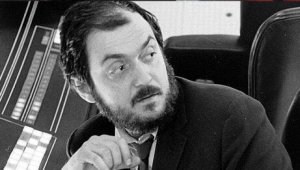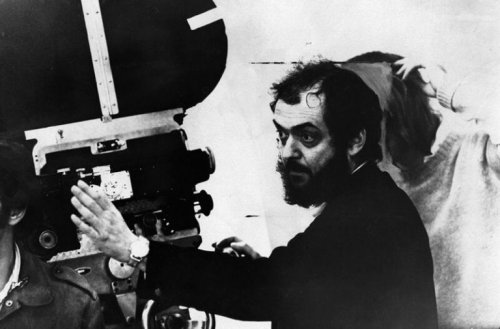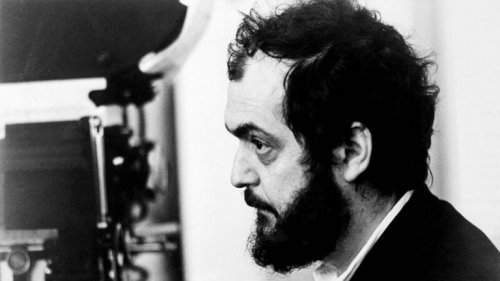Stanley Kubrick: The Life of a Genius


Written and verified by the psychologist Sergio De Dios González
The name Stanley Kubrick brings to mind cinema, perfection, symmetry, and depth. Kubrick is recognized as one of the great influences on 20th-century filmmaking. However, although no one questions his talent, Kubrick was also known for causing stress, exhaustion, and anxiety during filming.
Countless stories and legends have helped mythologize Stanley Kubrick. Some people are still trying to pick apart his films to try and find clues that might lead to the truth. Some even speculate that his controversial last film, Eyes Wide Shut (1999), had a lot to do with his death,
The image of Kubrick as a cursed and tormented genius has grown over the years. In this article, we’ll discuss his life and his incredible genre-defying work.
Stanley Kubrick’s First Steps in Film
Stanley Kubrick was born on July 26th, 1928 in the Bronx, New York. Despite growing up in a well-off Jewish family, Kubrick was an atheist. From his childhood, he showed an affinity for chess, jazz, and photography. These three interests significantly influenced his professional future. For Kubrick, chess was more than a simple form of entertainment. It gave him a particular ability to think before carrying out an idea.
Kubrick saw certain similarities between directing films and chess. Chess allowed him to observe and analyze before making any moves. There’s always a better play, and you can’t leave everything to chance.
He was such a chess fan that he included many direct and indirect chess references in his films. One example is in 2001: A Space Odyssey when Frank plays chess against his computer, HAL 9000.
“You sit at the board and suddenly your heart leaps. Your hand trembles to pick up the piece and move it. But what chess teaches you is that you must sit there calmly and think about whether it’s really a good idea and whether there are other, better ideas.”
-Stanley Kubrick-
Early Work
Stanley Kubrick wasn’t a good student. In fact, he often skipped class and got bad grades. Nevertheless, we know he was an extremely intelligent young person. His interest in photography led him to work for Look magazine at the age of 16.
His first foray into film was in the 50s with a documentary short titled Day of the Flight (1951). He later decided to leave his job as a photographer and work full time on his first feature-length film, Fear and Desire (1953). The film wasn’t successful, and Kubrick himself decided that it was a poor quality movie and got rid of all the copies.
Around the same time, Kubrick met a German woman who he ended up marrying. Her name was Christiane Kubrick, and she was Kubrick’s third wife.
After several film noir movies, Kubrick achieved recognition with his movie Paths of Glory (1957). This was an anti-war film starring Kirk Douglas that won the critic’s praise.
From the very beginning, Kubrick was known for his perfectionism and absolute control over his films. He needed to control all aspect of the process: production, direction, distribution, etc. Some people say that this obsessive style had to do with his love for chess. He quickly became infamous for being obsessive, authoritarian, and perfectionist.
Stanley Kubrick himself made sure to remind the press that he simply wanted his films to be how he imagined them to be. He said that he just wanted everything to turn out well and that that shouldn’t be something negative.
Recognition and Best-Known Films
After Paths of Glory, Kubrick continued to make acclaimed films for the next 60 years. Spartacus (1960) was his first high-budget film. Lolita (1962) was a controversial adaptation of the Nabokov novel of the same name. He made Dr. Strangelove in 1964, an exceptional film starring Peter Sellers, and the immortal 2001: A Space Odyssey (1968).
In spite of his growing fame, it wasn’t easy to get interviews with Kubrick and he rarely appeared in crowds. He left the United States to settle down in the English countryside and earned a bad reputation as a cold, misogynist, misanthropic, and authoritarian man.
Striving for Perfection
Kubrick’s perfectionism led him to leave out aliens in 2001: A Space Odyssey. Since he couldn’t find a way to make them seem real, they never appear explicitly on screen. Instead, Kubrick left it to the viewer’s imagination.
Journalist Michael Herr published a biography of Kubrick in the year 2000. In Kubrick, he dismantles much of the mythology and legend surrounding the famous filmmaker. Nevertheless, he still portrays him as a rather peculiar man.
Kubrick knew exactly what he wanted when he made his films. Consequently, he faced censorship of some of his movies, such as A Clockwork Orange (1971). He also broke the mold by filming one of his movies, Barry Lyndon (1975), with natural light.
Kubrick believed that if you want to portray the lives of 18th-century men, you have to immerse yourself in that period. That’s why he decided to film Barry Lyndon with candlelight and saturate himself with decorations from that period in history. His meticulousness led him to explore new techniques and new ways to make movies.
In 1980, the filmmaking genius terrified everyone with The Shining, a movie inspired by the Stephen King book of the same name. Filming wasn’t easy. His conflict with the main actress, Shelley Duvall, fed his image as a cold and intransigent director. Filming was also difficult for Malcolm McDowell, lead actor in A Clockwork Orange. He fractured some ribs and suffered a cornea injury during the shoot.
Kubrick started to slow down in the 80s after the debut of The Shining. He took seven years to make his next film, Full Metal Jacket, which revisited some of the themes from Paths of Glory.

From a Moon Landing to Eyes Wide Shut
Kubrick’s films are full of symbolism. These symbols often communicate relevant information to the viewer. When 2001: A Space Odyssey came out, special effects and movies, in general, underwent a drastic change. How many films from that decade are remembered for their realistic and incredible special effects? Remember, this all happened before man walked on the moon.
This was how the legend got started that Kubrick actually filmed the first lunar landing and that the whole thing was a hoax. Many people believe that he put a lot of subliminal messages about it in his subsequent films that confirm this theory. One example is a scene in The Shining when Dany is wearing a t-shirt with a space rocket that says “Apollo 11, USA”.
The rumor gained momentum when a fake documentary about the theory came out called Operation Avalanche. Some people believed that the documentary was true, so the legend continued to spread.
In 2016, the Kubrick’s daughter Vivian took it upon herself to dispell the rumors on Twitter. She also reminded everyone that her father had had problems with the U.S. government over his controversial movies. Why would Kubrick help the same people who were trying to censor his art?

In spite of Vivian’s efforts, the conspiracies continued. There are countless theories on the internet about how Kubrick belonged to a secret society. Some people believe that his last film, Eyes Wide Shut, was his way of unmasking the secret societies that dominate the world. They believe that this movie was like a death sentence for the director. While Kubrick was quite politically controversial and skeptical of democracy, there’s no way of knowing if these theories are true.
Stanley Kubrick’s Death
What we know for sure is that Kubrick died of a heart attack at the age of 70 on March 7th, 1999, before the premiere of Eyes Wide Shut. He was buried in a private funeral in his backyard under his favorite tree without any kind of religious ceremony.
Whether or not the fantastic rumors about Kubrick are true, there’s no doubt that he was quite a talented filmmaker. He was a prolific filmmaker and his legacy has lasted through the years. There were some movies that Kubrick never got a chance to finish, such as Napoleon and even a pornographic film titled Blue Movie.
Although he never won an Oscar for Best Director, he did win the Oscar for Best Special Effects for 2001: A Space Odyssey. Controversial, unequaled, neurotic, and genius… Stanley Kubrick’s gift to the world were some of the most interesting films of all time.
“If it can be written, or thought, it can be filmed.”
-Stanley Kubrick-
The name Stanley Kubrick brings to mind cinema, perfection, symmetry, and depth. Kubrick is recognized as one of the great influences on 20th-century filmmaking. However, although no one questions his talent, Kubrick was also known for causing stress, exhaustion, and anxiety during filming.
Countless stories and legends have helped mythologize Stanley Kubrick. Some people are still trying to pick apart his films to try and find clues that might lead to the truth. Some even speculate that his controversial last film, Eyes Wide Shut (1999), had a lot to do with his death,
The image of Kubrick as a cursed and tormented genius has grown over the years. In this article, we’ll discuss his life and his incredible genre-defying work.
Stanley Kubrick’s First Steps in Film
Stanley Kubrick was born on July 26th, 1928 in the Bronx, New York. Despite growing up in a well-off Jewish family, Kubrick was an atheist. From his childhood, he showed an affinity for chess, jazz, and photography. These three interests significantly influenced his professional future. For Kubrick, chess was more than a simple form of entertainment. It gave him a particular ability to think before carrying out an idea.
Kubrick saw certain similarities between directing films and chess. Chess allowed him to observe and analyze before making any moves. There’s always a better play, and you can’t leave everything to chance.
He was such a chess fan that he included many direct and indirect chess references in his films. One example is in 2001: A Space Odyssey when Frank plays chess against his computer, HAL 9000.
“You sit at the board and suddenly your heart leaps. Your hand trembles to pick up the piece and move it. But what chess teaches you is that you must sit there calmly and think about whether it’s really a good idea and whether there are other, better ideas.”
-Stanley Kubrick-
Early Work
Stanley Kubrick wasn’t a good student. In fact, he often skipped class and got bad grades. Nevertheless, we know he was an extremely intelligent young person. His interest in photography led him to work for Look magazine at the age of 16.
His first foray into film was in the 50s with a documentary short titled Day of the Flight (1951). He later decided to leave his job as a photographer and work full time on his first feature-length film, Fear and Desire (1953). The film wasn’t successful, and Kubrick himself decided that it was a poor quality movie and got rid of all the copies.
Around the same time, Kubrick met a German woman who he ended up marrying. Her name was Christiane Kubrick, and she was Kubrick’s third wife.
After several film noir movies, Kubrick achieved recognition with his movie Paths of Glory (1957). This was an anti-war film starring Kirk Douglas that won the critic’s praise.
From the very beginning, Kubrick was known for his perfectionism and absolute control over his films. He needed to control all aspect of the process: production, direction, distribution, etc. Some people say that this obsessive style had to do with his love for chess. He quickly became infamous for being obsessive, authoritarian, and perfectionist.
Stanley Kubrick himself made sure to remind the press that he simply wanted his films to be how he imagined them to be. He said that he just wanted everything to turn out well and that that shouldn’t be something negative.
Recognition and Best-Known Films
After Paths of Glory, Kubrick continued to make acclaimed films for the next 60 years. Spartacus (1960) was his first high-budget film. Lolita (1962) was a controversial adaptation of the Nabokov novel of the same name. He made Dr. Strangelove in 1964, an exceptional film starring Peter Sellers, and the immortal 2001: A Space Odyssey (1968).
In spite of his growing fame, it wasn’t easy to get interviews with Kubrick and he rarely appeared in crowds. He left the United States to settle down in the English countryside and earned a bad reputation as a cold, misogynist, misanthropic, and authoritarian man.
Striving for Perfection
Kubrick’s perfectionism led him to leave out aliens in 2001: A Space Odyssey. Since he couldn’t find a way to make them seem real, they never appear explicitly on screen. Instead, Kubrick left it to the viewer’s imagination.
Journalist Michael Herr published a biography of Kubrick in the year 2000. In Kubrick, he dismantles much of the mythology and legend surrounding the famous filmmaker. Nevertheless, he still portrays him as a rather peculiar man.
Kubrick knew exactly what he wanted when he made his films. Consequently, he faced censorship of some of his movies, such as A Clockwork Orange (1971). He also broke the mold by filming one of his movies, Barry Lyndon (1975), with natural light.
Kubrick believed that if you want to portray the lives of 18th-century men, you have to immerse yourself in that period. That’s why he decided to film Barry Lyndon with candlelight and saturate himself with decorations from that period in history. His meticulousness led him to explore new techniques and new ways to make movies.
In 1980, the filmmaking genius terrified everyone with The Shining, a movie inspired by the Stephen King book of the same name. Filming wasn’t easy. His conflict with the main actress, Shelley Duvall, fed his image as a cold and intransigent director. Filming was also difficult for Malcolm McDowell, lead actor in A Clockwork Orange. He fractured some ribs and suffered a cornea injury during the shoot.
Kubrick started to slow down in the 80s after the debut of The Shining. He took seven years to make his next film, Full Metal Jacket, which revisited some of the themes from Paths of Glory.

From a Moon Landing to Eyes Wide Shut
Kubrick’s films are full of symbolism. These symbols often communicate relevant information to the viewer. When 2001: A Space Odyssey came out, special effects and movies, in general, underwent a drastic change. How many films from that decade are remembered for their realistic and incredible special effects? Remember, this all happened before man walked on the moon.
This was how the legend got started that Kubrick actually filmed the first lunar landing and that the whole thing was a hoax. Many people believe that he put a lot of subliminal messages about it in his subsequent films that confirm this theory. One example is a scene in The Shining when Dany is wearing a t-shirt with a space rocket that says “Apollo 11, USA”.
The rumor gained momentum when a fake documentary about the theory came out called Operation Avalanche. Some people believed that the documentary was true, so the legend continued to spread.
In 2016, the Kubrick’s daughter Vivian took it upon herself to dispell the rumors on Twitter. She also reminded everyone that her father had had problems with the U.S. government over his controversial movies. Why would Kubrick help the same people who were trying to censor his art?

In spite of Vivian’s efforts, the conspiracies continued. There are countless theories on the internet about how Kubrick belonged to a secret society. Some people believe that his last film, Eyes Wide Shut, was his way of unmasking the secret societies that dominate the world. They believe that this movie was like a death sentence for the director. While Kubrick was quite politically controversial and skeptical of democracy, there’s no way of knowing if these theories are true.
Stanley Kubrick’s Death
What we know for sure is that Kubrick died of a heart attack at the age of 70 on March 7th, 1999, before the premiere of Eyes Wide Shut. He was buried in a private funeral in his backyard under his favorite tree without any kind of religious ceremony.
Whether or not the fantastic rumors about Kubrick are true, there’s no doubt that he was quite a talented filmmaker. He was a prolific filmmaker and his legacy has lasted through the years. There were some movies that Kubrick never got a chance to finish, such as Napoleon and even a pornographic film titled Blue Movie.
Although he never won an Oscar for Best Director, he did win the Oscar for Best Special Effects for 2001: A Space Odyssey. Controversial, unequaled, neurotic, and genius… Stanley Kubrick’s gift to the world were some of the most interesting films of all time.
“If it can be written, or thought, it can be filmed.”
-Stanley Kubrick-
This text is provided for informational purposes only and does not replace consultation with a professional. If in doubt, consult your specialist.







